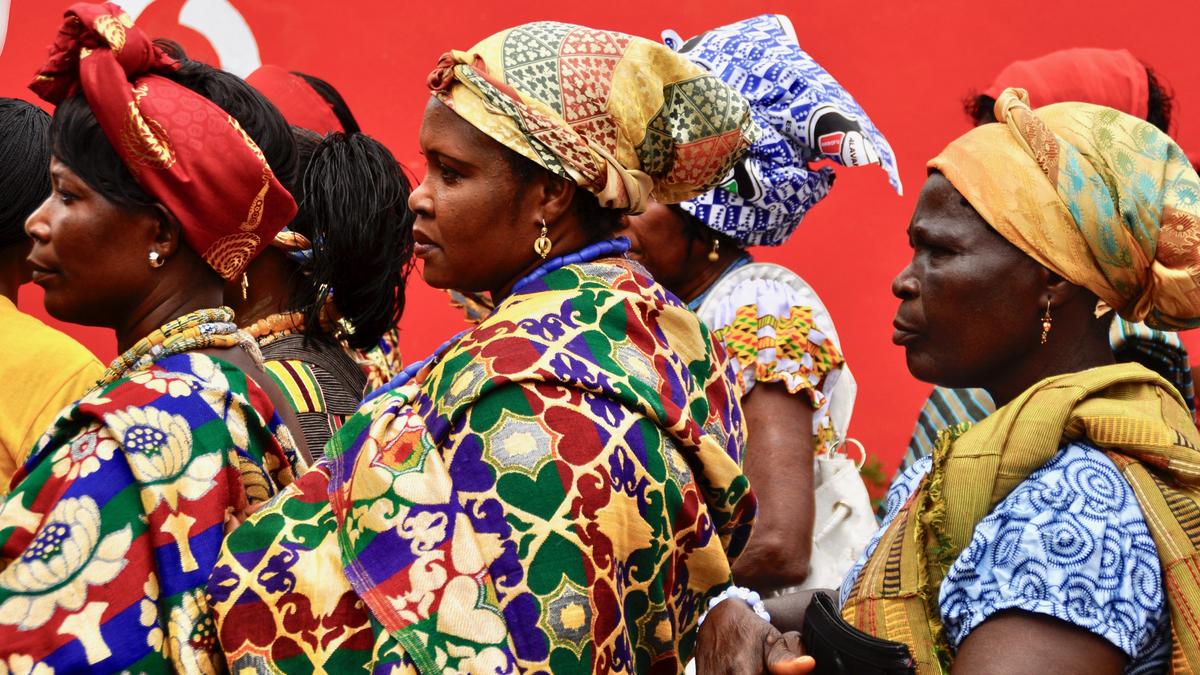
Sisterhood in Ghana | Review of Peace Adzo Medie’s ‘Nightbloom’, shortlisted for the Women’s Prize for Fiction 2024
The Hindu
Nightbloom by scholar and writer Peace Adzo Medie is an intergenerational family saga in Ghana that shines a light on sisterhood and societal expectations. It has been shortlisted for the Women’s Prize for Fiction 2024
Peace Adzo Medie is a scholar and a writer out of Ghana who has pounded the lives of two cousin sisters of a joint family and served them up like fufu, the spongy cassava or plantain ball that is a West African staple. Just as fufu has bounced into the plates of health-obsessed netizens, Medie’s intergenerational family saga nestled in the crook of the fabled gold coast of Western Africa has thrust Ghana into the literary limelight.
Medie has traversed many time zones in her own life. While she was born in Liberia, her fictional world is set firmly in Ghana. After her initial schooling in Ho, a town in the interior of Ghana, her family moved to Accra, the capital. She obtained a Ph.D in public and international affairs from the University of Pittsburgh, and is currently an Associate Professor of gender politics at the University of Bristol.
In her latest novel Nightbloom, shortlisted for the Women’s Prize for Fiction 2024, Medie has a somewhat bipolar vision in creating parallel lives for her characters, Akorfa and Selasi. They are cousins born on the same day in 1985, one in the rural city of Ho, the other in the capital of Accra. She draws the reader so smoothly into the life of Akorfa, the only child of her upwardly mobile parents, that we get seduced into seeing Selasi as the poor cousin. Selasi is orphaned by the death of her once-vibrantly-alive mother who passed away giving birth to her brother, and is later abandoned by her father.
While the first plays with Barbie dolls, the other has to make do with a plastic molded doll from the local market. In anglicised terms, Akorfa is the one born with a silver spoon, Selasi, the wooden one. Perhaps you need a wooden spoon to stir the fufu, for Selasi does become a hugely successful restaurant owner later in life, with a good husband and two children of her own. In spite of these disadvantages, the girls love each other. Akorfa repeatedly tells us how much she longs for Selasi’s company whenever she’s invited for night-spends and later on to when they are together at their convent-run boarding school. Akorfa’s fashionable mother Lucy is the one who insists on Selasi being there. Later, we discover that she has her own reasons for inviting Selasi to be shadow sister to Akorfa.
It’s only when we are halfway into the hugely successful life trajectory of Akorfa’s career, who races through school and boarding school to earn a seat in an American University, propelled by her mother’s dream that she should become a doctor, that the novel takes a sharp turn. Selasi upends the narrative in her own voice. Hers is a much more lyrical retelling that centres around the clan network that Lucy despised. After her mother died, Selasi was adopted by her paternal grandmother who nurtured her amidst her other offspring. The grandmother comes through as one of those matriarchs who weave together the strands of the family fabric, knots and all, into a shining web of memories.
The two parallel tracks converge as Medie’s gender-activist side reveals itself in a series of brutal episodes. Rape and its consequences within close family circles, even in the so-called liberated West, or more flagrantly in patriarchal societies where it is condoned or sanctified as a right of a privileged male, unite Akorfa and Selasi in a sisterhood of shame.
Medie refers only once to ‘Ubuntu’, the epigrammatic term that Nelson Mandela used to explain his philosophy of inclusiveness, or the oneness of humanity. “I am because of who we all are.”











